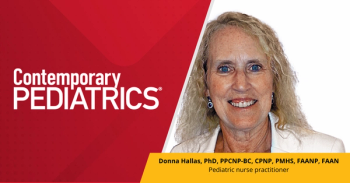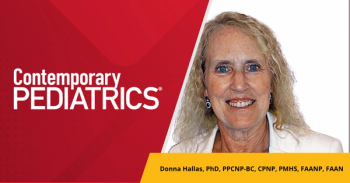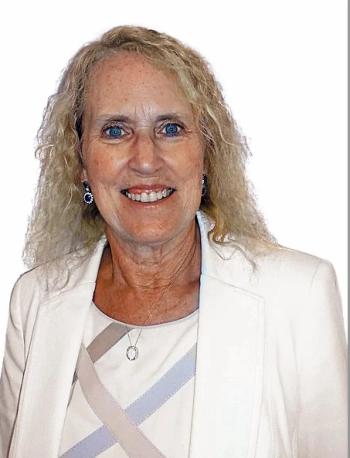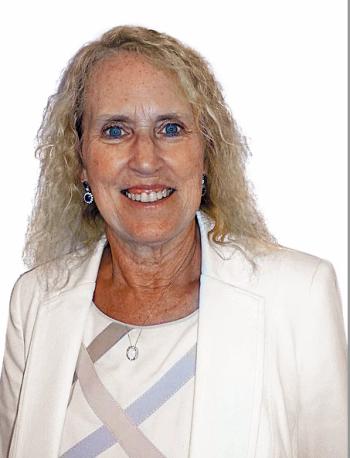
Are you protecting your adolescents and young adults from contracting meningitis B?
This commentary describes the story of Kimberly Coffey and the role pediatric/adolescent practitioners play in the prevention of invasive meningococcal meningitis by discussing with parents, adolescents, and young adults the value of accepting the meningitis B vaccine (MenB).
The death of an infant, child, adolescent, or young adult is a tragedy for parents, siblings, relatives, friends, health care providers, and a significant loss to the entire community. As pediatric nurses, pediatric nurse practitioners (PNPs), pediatricians, and pediatric-focused providers, we have first-hand knowledge of the emotional trauma parents experience at their child’s bedside when they receive life-changing news. Some parents turn tragedy to hope for others by sharing their experiences to create change and help others. One parent, Patti Wukovits, shares her story about her daughter, Kimberly Coffey, a 17-year-old who lived in Long Island, New York. In 2012, Kim contracted invasive meningococcal meningitis, and meningococcemia and was buried in her prom dress 3 days before her high school graduation.
The Kimberly Coffey story
The article, “What is your meningitis vaccine IQ,” published in the March issue of Contemporary Pediatrics® focuses on the prevention of meningitis in infants, children, adolescents, and young adults.1 This commentary describes the story of Kimberly Coffey and our role as pediatric/adolescent practitioners in the prevention of invasive meningococcal meningitis by discussing with parents, adolescents, and young adults the value of accepting the meningitis B vaccine (MenB). Patti’s story about her daughter is compelling. It is a story that PNPs, pediatricians, and all pediatric-focused providers can use while speaking with adolescents, parents, and young adults who may not know about meningitis diseases or the available vaccines or those who may be vaccine-hesitant or refusers.
“Kim was 2 weeks away from her high school graduation. She came home from school with [influenza]-like symptoms, body aches, and a temperature of
101 °F, said Wukovitis said in a personal interview from 2022. That evening, her pediatrician said, she could have influenza and to call in the morning if she did not feel any better. In the morning, Patti said, “Kim felt horrible.” She told her mother that she “felt so sick from my eyeballs to my ankles.” Kim had a small petechial rash, which Wukovitis, a registered nurse, knew was a major concern. Wukovitis recalls her daughter saying, “I feel like my ankles are bleeding…I feel my capillaries are leaking.”
Patti knew something was terribly wrong and rushed Kim to the Emergency Department. By the time they arrived, the petechial rash had turned into a purpura rash. The physicians knew immediately that she had bacterial meningitis. Wukovitis’ response was: “How can she have meningitis? She received the meningitis vaccine.” She was informed that the Men ACWY vaccine that Kim received did not provide protection against serogroup B meningitis. Wukovitis recalls, “I was shocked…Kim was septic, in multiorgan failure, and in septic shock. She had a cardiac arrest and was resuscitated. Her arms and legs were bright purple, then turned black. A few days later she suffered a brain herniation,” and passed away. The MenB vaccine was not available until 2014, 2 years after Kim lost her life to invasive meningococcal meningitis, which today, is a vaccine-preventable disease.
The Kimberly Coffey Foundation
Today, Wukovits is dedicated to helping parents and adolescents understand the differences in the available meningitis vaccines and, most importantly, why both the Men ACWY and the MenB vaccines are needed for protection against meningitis for high school adolescents, college-age adolescents/young adults. To accomplish this goal, Wukovitis created the Kimberly Coffey Foundation and serves as the executive director.2 Through Wukovitis’ work in the foundation, she has designed national educational initiatives informing parents, adolescents, health care providers, local, state, and national leaders, including lawmakers to improve vaccination policies about meningococcal meningitis disease and the necessity for both the MenACWY vaccines and the 2 safe and effective MenB vaccines for protection against invasive meningitis.3,4
Wukovitis was actively involved with passing the meningococcal disease vaccination law in New York State in 2016 and ending select vaccine exemptions.5 This law, became effective on September 1, 2016, all public and private school students entering seventh and twelfth grade in New York must be fully vaccinated against meningococcal disease serotypes A, C, W, and Y to attend school.5 In addition, June has been declared Meningitis B Awareness month in New York since 2015, thanks to the work of Wukovits.2
Wukovits has created educational materials for health care providers providing guidance for talking with parents and teens about the MenB vaccine.2 In 2020, Wukovits conducted a survey asking 524 health care providers, including pediatricians, about the administration of the meningitis vaccines. Results showed that the primary reason the MenB vaccine was not administered was directly related to providers not talking about the vaccine with the adolescent or parent. Furthermore, Wukovits’ work has shown 80% of parents who participated in a survey did not know that there were 2 types of meningitis vaccines, Men ACWY and Men B.2
The Meningitis Action Project
In addition to the Kimberly Coffey Foundation, Wukovits is cofounder of the Meningitis B Action Project, a joint initiative by the Kimberly Coffey Foundation and the Emily Stillman Foundation.6 The Emily Stillman Foundation was created by Alicia Stillman, Emily’s mother. Emily was a sophomore in college when she complained of a severe headache. After taking an antipyretic, she woke up in the middle of the night with a severe headache and went to the Emergency Department. Her symptoms continued to progress. Antibiotics were started when the diagnosis of meningitis B was suspected. However, Emily lost consciousness secondary to cerebral and spinal edema from meningitis. Emily passed away 36 hours after she was hospitalized.6
Providers need to talk about and administer the MenB vaccine
The stories of Kimberly Coffey and Emily Stillman make a compelling case for all pediatric, adolescent, and young adult health care providers to strongly support the acceptance of the MenB vaccine rather than only using shared decision-making when talking about the MenB vaccine. Guiding health care decision-making by adolescents, their parents, and young adults is a significant part of our practice with the goal of helping adolescents enter adulthood as a healthy adult, both physically and mentally. Supporting the administration of the MenB vaccine for all adolescents and college-age students removes one threat to the health and well-being of adolescents and young adults.
References:
- Hallas, D. What is your meningitis vaccine IQ? Contemporary Pediatrics, 2023;40(2): 19-22. https://www.contemporarypediatrics.com/view/what-is-your-meningitis-vaccine-iq-
- Meningitis B is a deadly bacterial infection that took Kimberly’s life. Kimberly Coffey Foundation. 2022.Accessed July 12, 2022. https://www.kimberlycoffeyfoundation.org/
- Trumenba. US Food and Drug Administration. November 23, 2021. Accessed July 25, 2022. https://www.fda.gov/vaccines-blood-biologics/vaccines/trumenba
- Bexsero. US Food and Drug Administration. January 7, 2022. Accessed July 25, 2022. https://www.fda.gov/vaccines-blood-biologics/vaccines/bexsero
- New law requires meningococcal vaccine for all New York children entering 7th and 12th grades. News Release. New York State; August 31, 2016. Accessed July 25, 2022. https://www.health.ny.gov/press/releases/2016/2016-08-31_new_meningococcal_vaccine_law.htm
- Emily’s Story: as told by her mother, Alicia Stillman. Meningitis B Action Project. 2022.Accessed July 25, 2022. https://meningitisbactionproject.org/emilystory
Newsletter
Access practical, evidence-based guidance to support better care for our youngest patients. Join our email list for the latest clinical updates.








